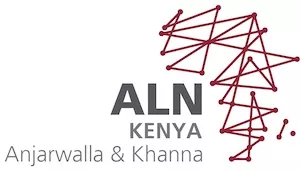- within Criminal Law topic(s)
- in European Union
01 | Introduction
The Finance (Miscellaneous Provisions) Act 2021 was gazetted on 05 August 2021 and it brings into force a number of amendments to the legislations in Mauritius. The fourth segment of the joint Axis and BLC Robert Finance Act series will be covering the legislative amendments implemented to the "Regulatory and Compliance" sector, highlighting the key amendments made to the Bank of Mauritius Act, Banking Act, Economic Development Board Act, Financial Intelligence and Anti-Money Laundering Act, Financial Reporting Act, Financial Services Act, Information and Communication Technologies Act, Insurance Act, Interpretation and General Clauses Act, Local Government Act, Merchant Shipping Act, Prevention of Corruption Act, Prevention of Terrorism Act and United Nations (Financial Prohibitions, Arms Embargo and Travel Ban) Sanctions Act 2019.
02 | Bank of Mauritius Act
Functions and powers of the Bank of Mauritius
The amendments to the Bank of Mauritius Act 2004 follow the themes laid in the Banking Act 2004 with enhanced powers and supervisory role of the central bank.
Section 5 relating to the functions of the central bank has been amended to enlarge the ambit of the regulatory and supervisory powers of the central bank to any financial institutions and other institutions which the central bank may licence or authorise under the banking laws. Furthermore, the Bank of Mauritius is now the macroprudential authority of Mauritius.
The central bank has been granted additional powers to open accounts for, accept deposits from and pay interests on such deposits to licensees under the National Payment Systems Act.
Sustainable bonds
In the line with the recent guidelines on sustainable bonds, the central bank has been empowered to issue guidelines, directives, rules or instructions regarding the framework for the issue of sustainable bonds, including blue and green bonds in Mauritius.
Digital currency
Under the Finance Act 2020, the Act was amended to allow the Bank of Mauritius to issue digital currency, the amendments brought by the Finance Act 2021 go a step further with additional measures.
The central bank is now empowered to make rules to provide for the framework under which digital currency may be issued by the central bank, held and used by the public. The central bank is further authorised to open accounts and accepts deposits of digital currencies issued.
Making, altering or using counterfeited digital currencies have been added as a criminal offence under the Act with a fine not exceeding one million rupees and to penal servitude.
Central KYC and Accounts Registry
The existing Central KYC Registry created under section 52A of the Act will now be known as the Central KYC and Accounts Registry with the main existing functions of collecting KYC records submitted to KYC institutions by their customers and now to also collect information on accounts maintained by customers, other than the balance and amount held in the accounts.
The following new terms have been added in the light of the enlarged powers of the Registry:
- "accounts" is defined as:
- accounts maintained in Mauritius by a financial institution for its customer;
- IBAN account maintained in Mauritius by a financial institution for its customer;
- safe deposit box leased by a bank or (iv) any account maintained by financial institution as the central bank may specify.
- "customer" means:
- the owner of an account
- the lessee of a safe deposit box leased by a bank
- a person who acts on behalf of (i) or (ii), (iv) the beneficial owner of an account.
Credit Scoring
Section 52B of the Act has been amended to enable the Credit information Bureau to provide credit scores, defined as numbers which represent the credit exposure of customers.
Click here to continue reading . . .
Originally published September 27, 2021
The content of this article is intended to provide a general guide to the subject matter. Specialist advice should be sought about your specific circumstances.


